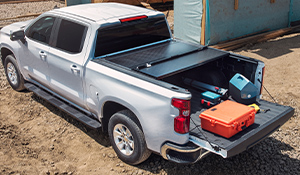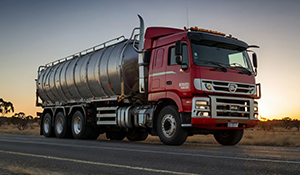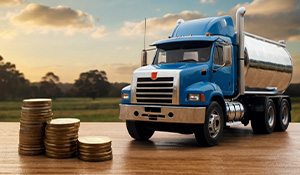Komatsu hybrid system wins Australian Design Award
As employed on the HB205 excavator first released here last year, the Komatsu diesel-electric hybrid system utilises regeneration of electrical power, engine assist for power on demand, and ultra-low engine idle, all within a smaller engine, to achieve reduced fuel consumption and lower CO2 emissions.
The hybrid system includes an electric motor generator, swing motor generator and ultra capacitor with inverter. It is separate from the conventional excavator electrical system, is double insulated and contains numerous safety devices to protect the user and the system from damage. The inverter converts electricity from the swing motor generator or generator motor from AC to DC for storage in the capacitor and from DC to AC to supply the swing motor or generator motor for engine assist as required.
The key is the HB205's swing motor generator, which uses electricity from the capacitor or generator motor to drive the upper structure swing function. During swing braking, the swing motor generator converts kinetic energy into electrical power and sends it to the capacitor via the inverter. The generator motor generates electric power with engine torque to drive the swing motor or charge the capacitor when necessary.
This allows the HB205 to run a smaller four-cylinder engine, instead of the usual six-cylinder for an excavator in this weight class, thus reducing both fuel consumption and CO2 emissions.
The HB205 was the world's first commercially produced hybrid excavator and is available in the 20 tonne class, the most popular size machine in the global market.
Other Good Design recipients in the Heavy Equipment category included the Quik Lok Safety Coupler valve for high pressure compressed air systems used in the mining industry. Locally designed and developed, the Quik Lok is a safer and simpler valve system than conventional claw coupler hose connections.
Another Australian Good Design recipient was the 'kwik-ZIP' HD centralizer, developed by Applidyne Australia Pty Ltd. The kwik-Zip replaces heavy, costly steel and concrete centralizers for pipes in wells and drains with lightweight thermoplastic bows that are claimed to be able to withstand strains in excess of 300% without failure.















